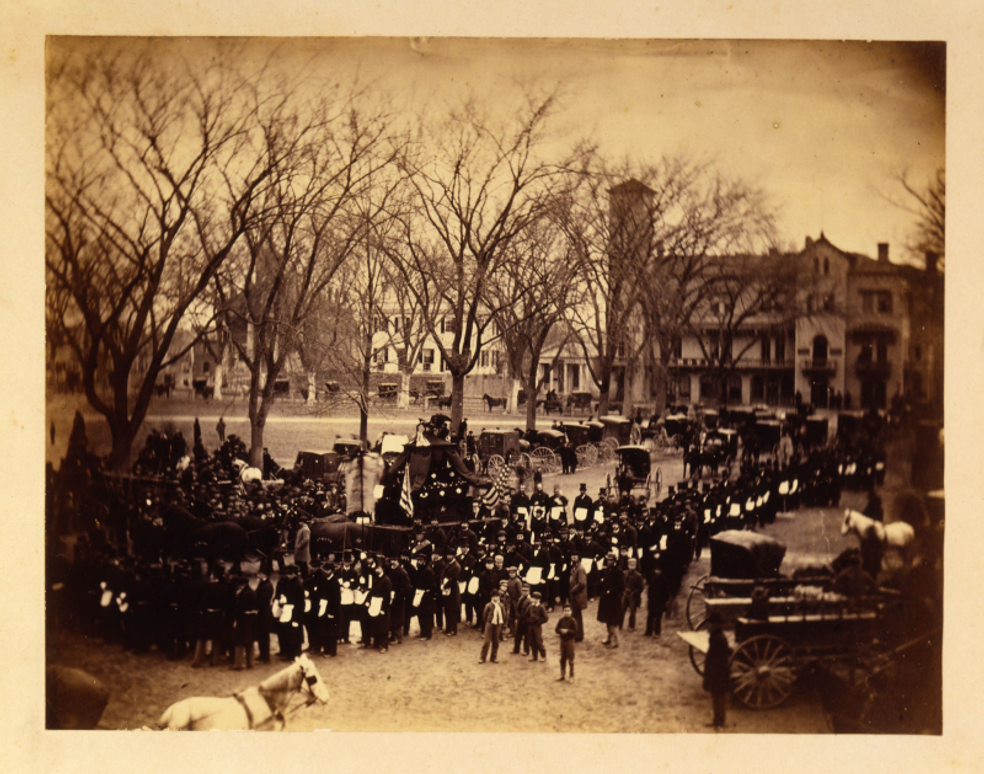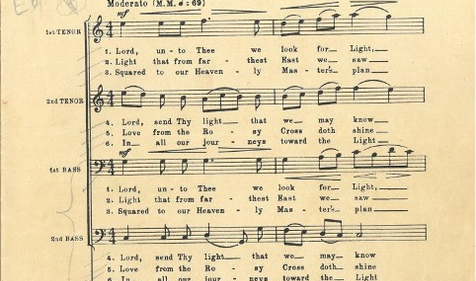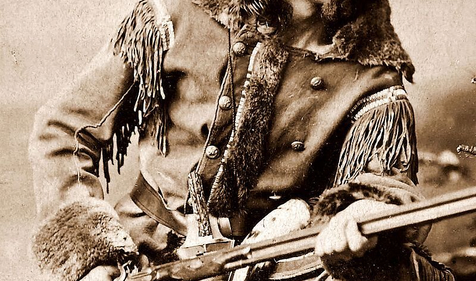Freemasons honor members who have passed with a Masonic funeral. Brothers are often buried in Masonic regalia and marked with a fraternal gravestone.
On July 29, 2020, the Georgia State Capital hosted a Masonic funeral ceremony for Congressman John R. Lewis. The pivotal civil rights leader had an incredible legacy in and out of the fraternity. He was a member of the United Supreme Council, 33° of the Ancient and Accepted Scottish Rite of Freemasonry, Prince Hall Affiliation, Southern Jurisdiction of the United States of America. He was also a Shriner and an honorary 33° Freemason in the Scottish Rite Southern Jurisdiction. The funeral of Illustrious Brother Lewis, held by the Prince Hall Free and Accepted Masons of Georgia, was a moving occasion for our Brethren to honor and celebrate his life.
Because of his position as a congressman, this occasion was particularly public compared to most Masonic funerals. In this blog, we delve into the timeless traditions and practices that underscore the importance of these ceremonies.
A Masonic Funeral Ceremony
Most Masonic jurisdictions grant a member in good standing with their lodge a Masonic funeral. While they are typically reserved for Master Masons, there are times when it is appropriate to hold a funeral ceremony for Fellowcrafts or Entered Apprentices, as long as the Worshipful Master believes the circumstances call for it. Typically, in these instances, the Fellowcrafts or Entered Apprentices must have received their degree less than one year before death. The same rule is applied to Master Masons who were suspended for nonpayment of dues within the period.
It is important to note that this ceremony is only carried out at the request of a Master Mason or his family. If a Master Mason requests a Masonic funeral and passes away, the rites are performed by the deceased Brother’s lodge. It is intended to be an opportunity for those who knew him and his work to honor him.
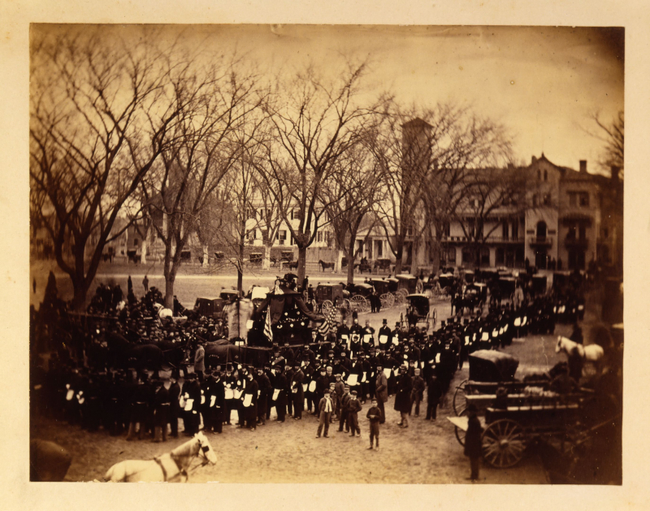
Above is an example of a Masonic funeral in 1916 from the Scottish Rite Masonic Museum & Library’s (SRMML) collection. This image shows a group of Masons gathered in Taunton, Massachusetts, for the funeral procession of Alden Hathaway Blake. Blake was a bookkeeper, Civil War veteran, and member of King David’s Lodge in Taunton.
Preparing for a Masonic Funeral
Whether you are a Freemason or a family member of a Freemason and are interested in having a Masonic funeral for yourself or your loved one, there are some important things to know. First, a Lodge will only perform a Masonic funeral at the request of a Brother or his family.
When and where you want to perform the ceremony is flexible. It can be held in places of worship such as a chapel, mosque, church, or synagogue. It can be held at home, in a Lodge room with committal at the graveside, or separately from a formal burial. The Masonic service may be held in conjunction with a religious service while other fraternal services such as The American Legion or the Benevolent and Protective Order of Elks are performed independently of any other service. The manner is entirely up to the family's or deceased Freemason's preference. The only restriction is that the Masonic service should be completed without interruption once it begins.
If you want to plan a Masonic funeral, speaking honestly with your loved ones about your intention is important. Put your instructions in writing, give a copy to the person who will handle your affairs, and place another copy with your will, insurance papers, and other valuable documents. The more detail you can provide, the better. Losing a loved one is never easy, and it's essential to consider it will be a challenging time for your survivors. Therefore, it can help to prepare an autobiographical profile of your life and achievements, both in and outside of the Craft.
Relevant details you can track include important dates during your Masonic journey, such as when you completed each degree. You can also include any appendant bodies you joined and awards or recognitions you received. Detail your favorite degrees, rituals, passages, and experiences that were critical to your development as a Freemason. List your ranks, medals, citations, and commendations if you were in the military. Many Freemasons are also heavily involved in their religious communities, and it is entirely appropriate to take note of your religious affiliation, favorite scripture(s), hymn(s), song(s), and offices held in your congregation.
Taking the time to compile these details shouldn't be considered a morbid affair. It is a chance to reflect on the thoughts and events that have made you into the man you are. Furthermore, it will make it easier for your surviving family and friends to fulfill your wishes after you pass. It will also help them recall dates, anniversaries, events, personal interests, and significant accomplishments that were important to you.
Masonic Gravestones
For members who request a Freemason funeral, it is common to also request their burial site to be marked with a Masonic gravestone. While the Masonic funeral and gravestone do not go hand in hand, both can be used to honor a late Brother upon separate requests. The headstones are often etched with Masonic symbols, such as the square and compasses, hourglass, and wings of time.
Below is an example of a Masonic gravestone rubbing, provided by the SRMML. This particular gravestone includes not only Masonic symbols but also a family roll that outlines the names of the Brother’s wife and seven children. The epitaph engraved on the stone reads, “Farewell vain world, I've had enough of thee / And now I'm careless what thou say'st of me / The faults saw'st in me take care to shun / There's work within thyself that must be done.”
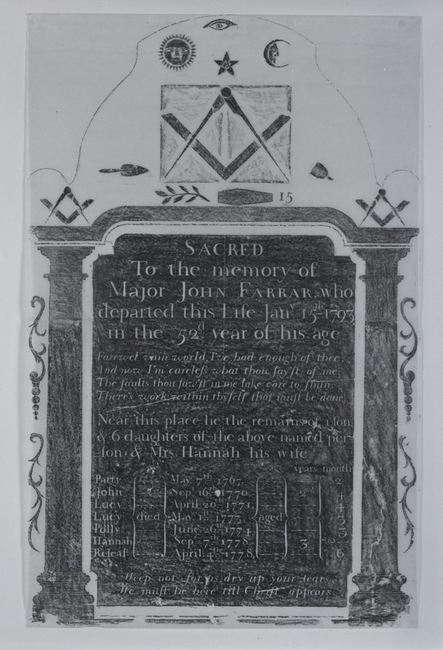
A Masonic funeral can provide great comfort and healing to your fellow Freemasons, loved ones, and friends. It can make the grieving process much easier while helping those you care about in life walk away with better insight into the life of the person they have come to honor.
Related Stories
Discover additional Scottish Rite blogs and news on this topic.
